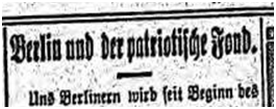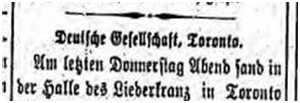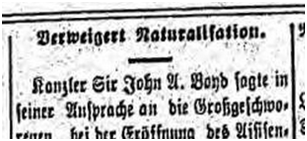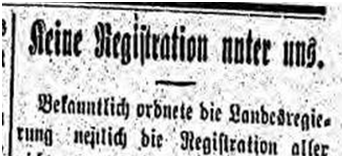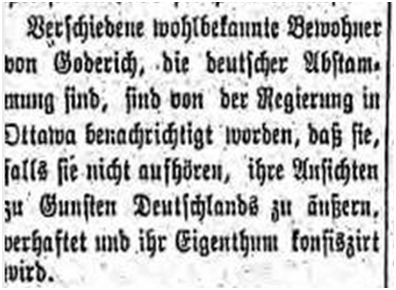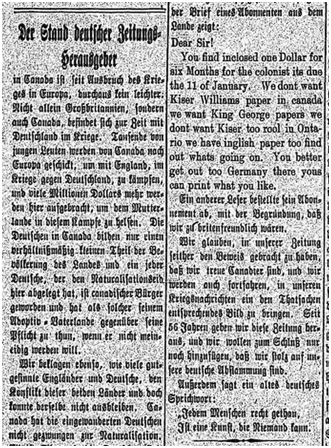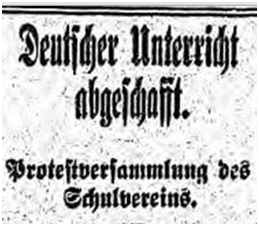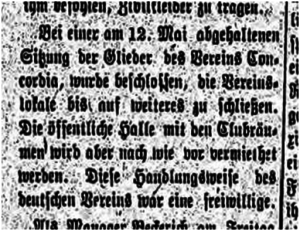On September 23, the editors of the Berliner Journal published a letter to their readership. They stated that the question of whether the war could have been prevented was irrelevant and encouraged their readership to donate to the patriotic fund. Everybody was also encouraged to contribute towards helping families on the home front. The paper also made it clear that the fund did not pay for weapons at the front but only helped the families of soldiers, so that those who donated would not have to worry that their donations were contributing to the carnage in Europe.
(“An den Leser” Berliner Journal, 23 September 1914)

